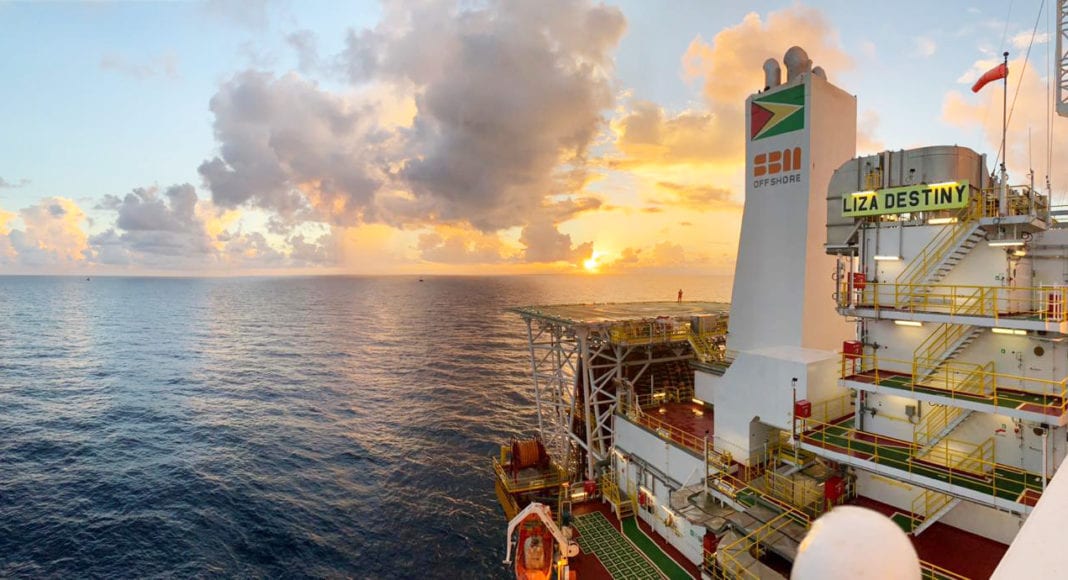The demand for petroleum is expected to remain robust in coming years but trends that point to an accelerated shift to renewables mean developing oil and gas resources sooner rather than later will ensure the most favourable returns for explorers and host countries.
Guyana, Mozambique, Cyprus, Israel and Senegal are just some of the major new oil and gas provinces opened up by the drill bit this century where giant discoveries have the potential to enrich these countries and transform companies. So says Simon Flowers, Wood Mackenzie’s Chairman and Chief Analyst. He notes however that the latest cuts to exploration budgets in response to a shortfall in demand have accelerated the withdrawal of investment that has taken hold in the last six years.
“Global spend on conventional exploration hit a peak of almost US$100 billion in 2014. After the 2015 price crash, budgets fell 70% to U$$30 billion. The cuts this year will take off another third at least, reducing spend to what we think will be the new normal of US$15 billion to US$20 billion,” Flowers said. “The Majors and NOCs will account for most of that.”
He pointed out that much of this year’s cuts reflect cash conservation in response to the oil price fall. “But we are also seeing signs of a significant strategic shift. Companies that have been committed to exploration are reassessing whether it will be central to the business model in future.”
Flowers said the bigger European IOCs aim to be net carbon neutral by 2050. Diversifying and allocating capital into zero-carbon assets implies a relative downgrading of oil and gas. If upstream is going to shrink, he said, exploration will not be needed as much.
BP aims to replace less than one-third of its reserves through exploration. Repsol, too, has hinted at a much narrower exploration focus around its core E&P positions while other companies such as ExxonMobil are setting targets to cut their greenhouse gas emissions as a proportion of production.
But notwithstanding steps to limit global warming, Flowers said oil and gas fields that are onstream or under development won’t meet all future demand in the next 20 years. “The volume of new supply needed could be at least 460 billion boe in a 2o scenario; and as much as 760 billion boe in the Wood Mackenzie base case.”
Some of that, he said, will come from existing resources, “but exploration can take its share if it can deliver advantaged barrels – low cost, low carbon intensity barrels with competitive economics.”
WoodMac has said that projects which have clear strategic drivers, robust economics and operators with strong balance sheets are advantaged.
“Advantaged deepwater oil in places like Guyana and Brazil, along with niche LNG – including low-cost greenfield and feedgas backfill at legacy liquefaction projects – will progress,” Robert Morris, a senior analyst at WoodMac has said.
“You’ve got two things that are going for you in Guyana,” Schreiner Parker, Rystad Energy’s Vice President for Latin America and the Caribbean, told OilNOW. “One, is that the operator is Exxon, and the second is the nature of the assets, especially from a breakeven point of view and development costs point of view. For offshore assets, the Stabroek Block is very competitive in breakeven terms, so even in a low oil price scenario that asset class is still very attractive.”
ExxonMobil is targeting five offshore developments in Guyana by 2026 which it says are expected to produce upwards of 750,000 bpd. So far, its first development at the Liza field has started with phase 2 expected by 2022.
A third development at Payara could be delayed by as much as 12 months which Rystad Energy said could cost Guyana around 75 million barrels of oil, amounting to an estimated $1.6 billion loss.
For now, ExxonMobil continues to forge ahead with exploration and development drilling at the prolific Stabroek block and is also moving ahead with activities at the neighbouring Kaieteur block.



